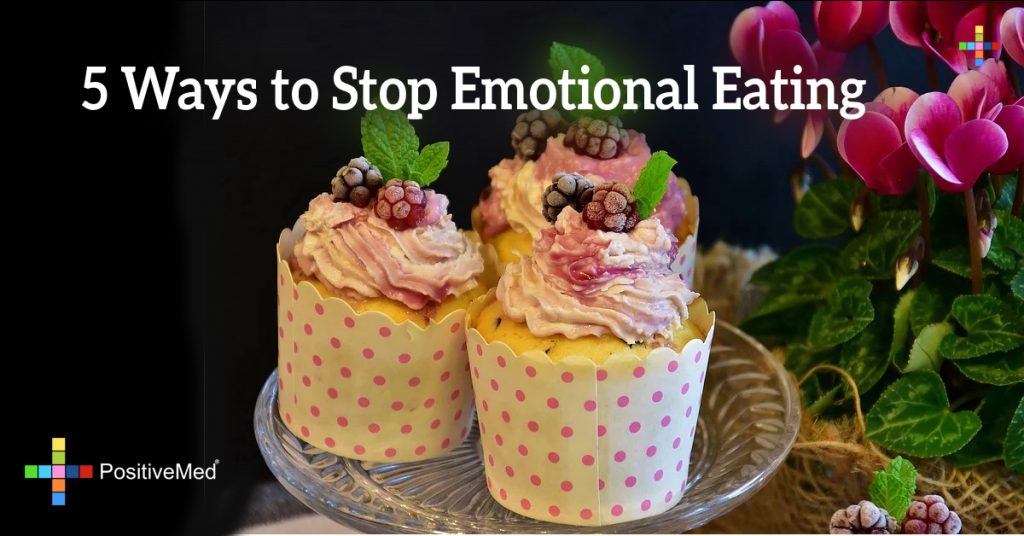
5 Ways to Stop Emotional Eating
By PositiveMed-Team
Edited By Stephanie Dawson
One of the biggest banes of dieting is emotional eating. Food is always conveniently available these days. We are often not aware when our next meal is scheduled as we are often so busy and stressed. To cope with this we often end up eating when we are not actually hungry as we think that comfort food is the way to deal with stress, anger, and anxiety.
5 Ways to shut down emotional eating:
• Know when you are hungry
Recognize when you are hungry and eat then. Its important to be mindful of your body and know what hunger feels like. You are hungry when your stomach grumbles or you feel that you are lacking energy. There is a difference between hunger and food cravings, its important to know the difference.
• Be wary of what you eat
Be aware, mindful, and careful of what you eat. Don’t dive for unhealthy foods like chips or ice cream when you are hungry. Instead opt for healthy choices. Eat food that is nutritious and fulfills your daily nutritional needs, wait for at least 30 minutes before eating another meal as it can take twenty minutes for the food to reach the stomach and trigger the feeling of satiation.

• Do not set unrealistic weight goals
The idea that you can be happy if you are thin can be an example of this. Happiness is a state of mind and being thin has nothing to do with it, being healthy can help you feel better in many ways. Don’t set unrealistic goals like losing 5 pounds in a week. You may tend to eat out of shame, embarrassment, guilt, and stress, try to be in touch with why you are eating. If dieting is done properly with a vision of gaining benefits in the long-term it can be very effective. If dieting is done to achieve unrealistic goals it can be dangerous to your health.
• Learn from setbacks
Try to forgive yourself and start fresh the next day if you have an episode of emotional eating. Make it a learning experience and make plans so that you do not repeat it in future. Focus on positive changes that you succeed in making to your eating habits and do not forget to give credit to yourself for achieving this. You can set small targets and reward yourself on achieving those targets.
• Structure your time
Risk of emotional eating is at its highest on weekends when there are hours of unstructured time. In order to combat this a project or an activity that you enjoy should be planned and deadlines built. If you are making something decide on a specific date when you plan to give it to a friend or a family member. Once you are through with this project, start another. This lifestyle can add to your quality of life in many ways and can help you shut down emotional eating during weekends.





